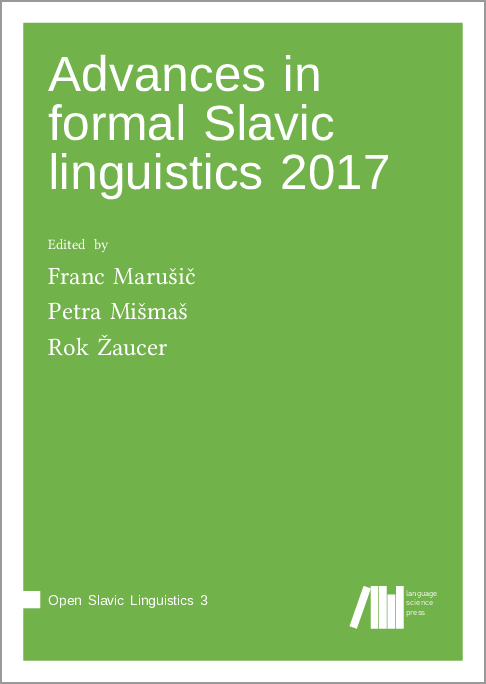We log anonymous usage statistics. Please read the privacy information for details.
Advances in formal Slavic linguistics 2017
Synopsis
Advances in Formal Slavic Linguistics 2017 is a collection of fifteen articles that were prepared on the basis of talks given at the conference Formal Description of Slavic Languages 12.5, which was held on December 7-9, 2017, at the University of Nova Gorica. The volume covers a wide array of topics, such as control verbs, instrumental arguments, and perduratives in Russian, comparatives, negation, n-words, negative polarity items, and complementizer ellipsis in Czech, impersonal se-constructions and complementizer doubling in Slovenian, prosody and the morphology of multi-purpose suffixes in Serbo-Croatian, and indefinite numerals and the binding properties of dative arguments in Polish. Importantly, by exploring these phenomena in individual Slavic languages, the collection of articles in this volume makes a significant contribution to both Slavic linguistics and to linguistics in general.
Chapters
-
Object control: Hidden modals
-
N-words and NPIs: Between syntax, semantics, and experiments
-
Whom to oblige?
-
Epistemic comparatives and other expressions of speaker's uncertainty
-
Czech modal complement ellipsis from a comparative perspective
-
Czech infinitival conditionals
-
A syntactic re-analysis of the Slovenian impersonal se-construction
-
How to introduce instrumental agents: Evidence from binding in Russian event nominal phrases
-
Constraining the distribution of the perdurative in Russian
-
Complementizer doubling in Slovenian subordinate clauses
-
Negation, comparative and alternatives: Experimental evidence from Czech
-
Syntax predicts prosody: Multi-purpose morphemes in Serbo-Croatian
-
Serbo-Croatian is developing stem-based prosody. Why so?
-
Several quantifiers are different than others: Polish indefinite numerals
-
Dative-marked arguments as binders in Polish




